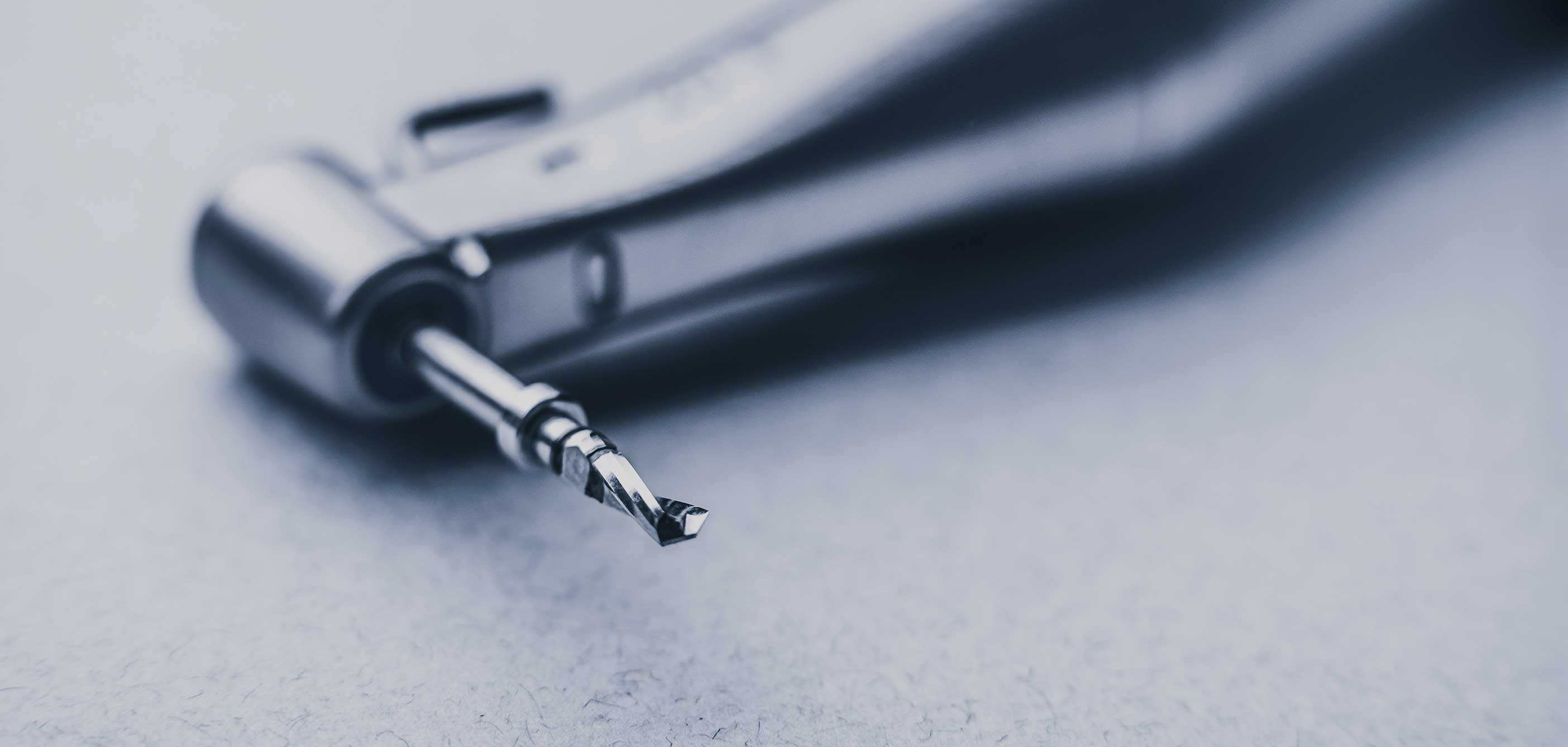Why you should never accept second best when it comes to your equipment.
In 2016 the General Dental Council (GDC) seized more than 1,900 counterfeit and non-compliant dental devices including hand pieces, surgery equipment and drill bits in the UK.
The regulator said: “The cheap devices - generally being sold online - can break and shatter while in the mouth, potentially causing horrific damage to the teeth and gums”.
Despite its warning, in August 2017, it decided to suspend a dentist who they found to be a ‘repeat offender’ of buying and using counterfeit and unregulated dental devices bought online.
And it’s widely believed that the temptation of online sites such as eBay are drawing dentists in.
But, as Chirs Bird, equipment sales manager at DD explains – unregulated, potential counterfeit and substandard kit bought online is a false economy.
I often get asked about second-hand dental chairs. It’s common for dental practices to put their old chairs on eBay and they quickly get snapped up. But by using second-hand equipment – even a chair – you could be doing your patients a massive disservice.
The dental chair is one of the hardest working pieces of equipment in a practice. It needs to work well and be safe. When you buy second-hand you don’t know about the items’ service and maintenance history – if indeed it has ever been serviced.
The last thing a dentist wants is to be treating a patient and the chair fails or worse still, it comes with a huge repair bill.
And you don’t know the health of the online purchase either.
Any used equipment can be contaminated and that’s a big problem for dental practices. On a dental chair the pipes under the dental chair get a film on them.
Mostly dentists buy their equipment in good faith. But my advice is always, if something looks too good to be true then it probably is.
Rouge sellers have flooded the market with shoddy goods that could potentially seriously harm the safety of patients.
Over the last couple of years we’ve seen a spike in the amount of counterfeit dental equipment sold through online marketplaces such as Amazon, eBay and Alibaba and sold for a fraction of the price of legitimate items.
Many of the fake dental devices reported or recovered in raids looked like high-quality products, with some even copying the CE markings, the instructions, the logos and even the packaging, but made from inferior materials and to poor standards.
In the last crackdown, the Medicines and Healthcare products Regulatory Agency (MHRA) recovered 12,000 poor quality, counterfeit dental tools.
The investigation prompted a campaign to encourage dentists to check their equipment and buy only from legitimate dental dealers.
Alastair Jeffrey, head of enforcement at the MHRA said: “We’ve had x-ray machines that produce a much higher level of radiation than they should.”
Jeffrey highlighted the very real dangers caused, not only to patients, but also to the reputation of a dental practice.
When a dentist buys from an auction site or from a fake dental dealer they inherited issues.
Even if the product is the genuine item, in the long run the savings made at the point of purchase could well be spent on costly repairs.
They don’t come with the benefit of warrantee like new stock bought from a reputable supplier. They don’t have the peace of mind of an engineer at the end of a phone able to offer guidance about installation, software updates – in fact, many won’t even arrive with instructions.
The only certainty when you buy second hand or online from unknown dealers is that you’re taking a risk – with your patients’ safety, your practice’s long- term finances and your reputation. That’s why it’s a false economy.
DD has a dedicated equipment department which supplies, installs and maintains everything from dental chairs and cabinetry through to the latest digital imaging systems and specialist product catalogues featuring orthodontic, oral hygiene and facial aesthetic product ranges.
It was founded almost 50 years ago and now employs over 600 people across the UK, including a state-of-the-art automated warehouse at the head office in Witham, Essex, which houses more than 27,000 product lines.
As a member of the British Dental Industry Association, DD supports the industry’s Counterfeit and Substandard Instruments and Device Initiative (CSIDI).



